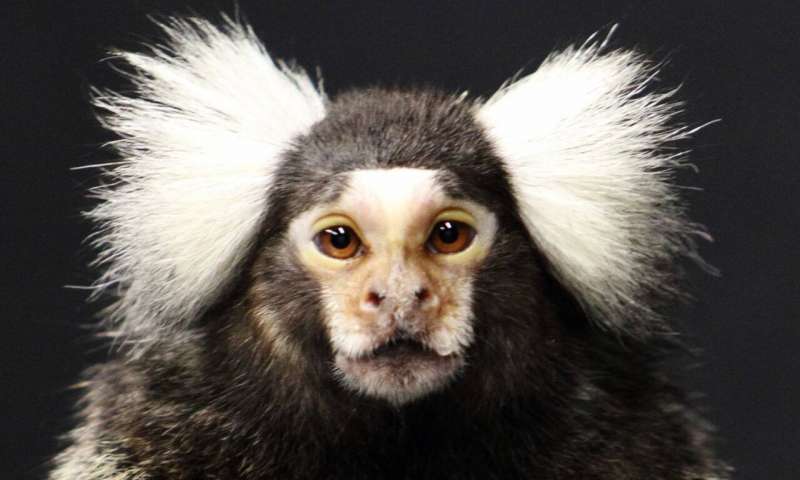HOME
Monkey study suggests that they, like humans, may have 'self-domesticated'

Asif Ghazanfar, a professor of neuroscience and psychology at Princeton University, led a team of scientists who determined that changing an infant monkey's vocal development also changed a physical marker of domesticity: a patch of white fur on its forehead. Credit: Rebecca Terrett and Lauren Kelly, Ghazanfar Lab, Princeton University
It's not a coincidence that dogs are cuter than wolves, or that goats at a petting zoo have shorter horns and friendlier demeanors than their wild ancestors. Scientists call this "domestication syndrome"—the idea that breeding out aggression inadvertently leads to physical changes, including floppier ears, shorter muzzles and snouts, curlier tails, paler fur, smaller brains, and more.
The link appears to come from certain neural crest cells, present before birth and in newborns, that have a versatility akin to stem cells. These neural crest cells can turn into a handful of different things, specifically adrenal cells—which boost the strength of the "fight or flight" response—as well as physical traits like larger teeth and stiffer ears.
Ever since Darwin's time, some scientists have speculated that humans "self-domesticated"—that we chose less aggressive and more helpful partners, with the result that we have shifted the trajectory of our own evolution.
News Source